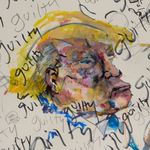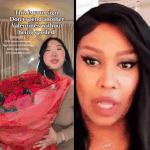
For a decade, James Blake has crafted an idiosyncratic sound: His early work as a minimalist electronic producer fused unfiltered synthesizers with lyrical collage and lush R&B chords; he describes his 2013 hit “Retrograde” as both apocalyptic and romantic. But his subversive production shows up on three of the most important albums in recent history: Beyoncé’s “Lemonade,” Kendrick Lamar’s “DAMN,” and Frank Ocean’s “Blonde.” Before Blake, it sounded like pop was caught in the same four-chord loop, but he has slowly infused the charts with his harmonic melancholy. His new album, “Friends That Break Your Heart,” includes his most compelling songs yet, all resting on those familiar wandering chords that send us on an emotional journey. Switched On Pop co-host Charlie Harding spoke with Blake about his harmonic inventiveness.
When you started releasing music in the early 2010s, it’s this era of very heightened, bubblegum pop. And years later, I feel like music has shifted to your vision — darker and more ambient harmonically rich. A decade later, how has your music-making changed?
I think whatever my style was became the style people associated with me for years after that, even when I wasn’t really making that style anymore. After that, people started to copy it, which happens to a lot of musicians. We’re in a state of constant recontextualization and borrowing.
But then when I turned on the radio, pop started to resemble versions of what I was doing a couple of years before. And it was hard to not notice that there were people profiting wildly in ways that I didn’t when I made that kind of music. That’s a bit of a shame, but it’s also that you’ve got people who are contextualizing it into a pop format.
That made me a bit insecure. I was just like, Fuck, I’m probably never going to be accepted in pop music really. And yet here we are, pop music sounds like that shit and I’m not even doing that anymore. So where’s my place in pop music? Maybe I don’t have one or maybe it was always on the outskirts looking in.
I think that for a while, and for other reasons as well, I lost a lot of confidence in what my sound was and whether that matters. And I think when you’re in your 20s, it really feels like innovating and having your own sound is really important.
Now I just want to write good songs. I just like making music. I love making music with other people. If I can innovate as well, then that’s great, but ultimately you get to a point where you go, well, the most important thing is I’ve had fun
Why is the language of harmony so important in your work?
I think it hits on a cellular level. There’s a kind of physical and spiritual component. Harmonies in vocals and chords resonate with me almost more than anything else.
If we look at your single “Life Is Not the Same,” it’s sort of a more limited palette for a James Blake piece. It’s a four-chord loop. And yet there’s still a lot of chordal richness.
You’re starting on the chord four of the key. Already you’re kind of in motion. And then you’re going straight to the fifth, which wants to resolve somewhere. It does resolve in the next chord, but then it immediately goes into a leading chord that makes it feel like it’s opening up to somewhere else. And that somewhere else is the start of this chord sequence again. So that’s how you end up in a never-ending loop.
How do you feel this never-ending quality that you’ve created is working with the meaning of the song?
This is a Take a Daytrip beat. I can’t take credit for that chord progression, but I can say what it makes me feel. It reminded me of the world of “Retrograde.” The piano and the humming and the cold world that it lives in felt like revisiting a feeling. It’s kind of apocalyptic. It’s kind of late night. It’s deep. It’s a bit misty. It’s a little bit romantic.
On “Funeral,” there’s a continuous progression that keeps moving and pushing with the melody, almost all the way through the chorus. It takes us the whole length of that section to get us to where we’re going to land. What is happening there?
The music was an improvisation, from start to finish that I chopped up. It was almost like filming a whole thing. And then just trying once — like in 1917 the movie there’s one cut in the whole movie and you can actually find it and see it. But the improv would have just been based on feeling and how my fingers just naturally move. The “I know this feeling too well” line came first and then I added verses.
What do you think that style of playing does? Are there certain emotions that this wandering leans toward?
I think I have the mind of somebody always searching for something new. It’s probably quite a pedigree for my personality. I think musicians often like chasing new experiences and new highs, and we’re also chasing spiritual concerns. I find contentment and bliss in a chord progression, but it’s fleeting. These moments of bliss really only come into your vision for a few seconds at a time. You experienced this incredible, pure feeling of peace.
I’m definitely hearing that on this record, as much as there is still some harmonic wandering. There’s certainly a lot more confidence and command over what you’re saying.
Yeah. I mean, is that just your early 30s? I don’t know. I think it might be. It’s funny because I did all this fucking therapy. And then I remember my mum said to me … I was like, “I feel like I’m getting more confident,” and my mum goes, “Um, you know, that happens when you enter your 30s.” And I was like, “No, it’s all this work I’ve been doing.” You don’t want to think that it’s just ’cause a bunch of brain cells died and my anxiety cells just fell off and so I felt a bit better.




